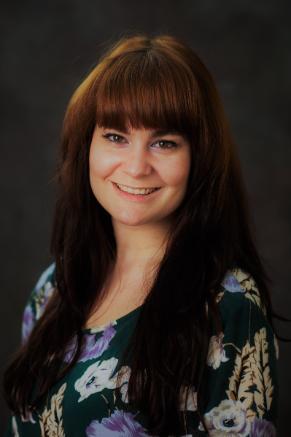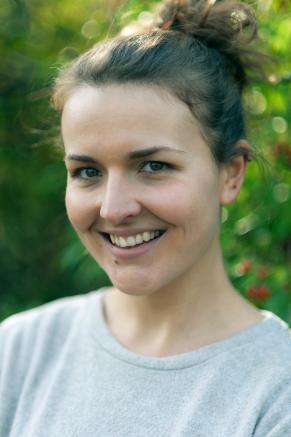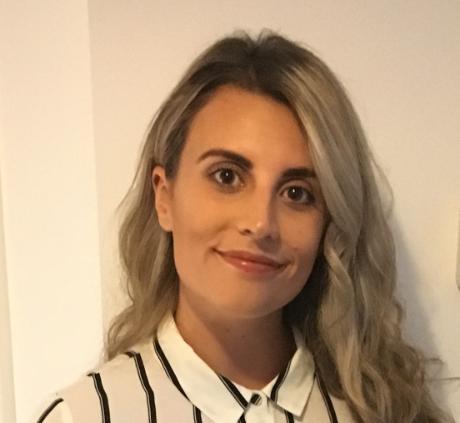College of Medical, Veterinary and Life Sciences Case Studies
The Transitions Survey was originally conducted in Autumn 2019 in order to gather data about the post-graduation jobs of recent PhD graduates. Participants were asked about their roles, the transition into their roles, and their advice for current PhDs to make the most of their PhD experience and prepare for post-PhD life and job searching. Those participating in the case studies included here also had the opportunity to update their responses in Summer 2020.
The following case studies are participants from the College of Medical, Veterinary and Life Sciences (MVLS).
Kirsty McWhinnie, Institute of Biodiversity, Animal Health & Comparative Medicine (IBAHCM)
Employment
Scottish Government Graduate Development Programme member.
Position secured before graduation.
What does your role entail?
The role is comprised of multiple placements in different directorates over the course of 4 years. My first posting was in the Scottish National Investment Bank programme where I worked on stakeholder engagement and communications. I am now coming to the end of my second posting in constitutional Policy.
What do you like and dislike about your current role?
Like: great work-life balance; brilliant, supportive work culture; interesting work; making a difference.
Dislike: sometimes the work can be slow paced, but other times it can be frantic if there are hard deadlines at short notice.
How did your doctorate lead to your current post?
During my doctorate I made sure to get a wide range of 'extracurricular' experience to enhance my transferable skills. This included teaching, hosting and organising seminars, and starting a PhD communications group. I decided about mid-way through my PhD that academia was not the right choice for me, and I worked with the careers advisor to assess what would be a good fit. I decided I wanted to work in the civil service. I applied for this job midway through my final year and started just before I submitted my thesis.
What career progression tips would you offer to researchers if they want to follow a similar path to your own?
Go and see the careers advisor early on to help figure out if this path is right for you. Get transferable skills; the PhD is not enough.
Transitioning to Employment
What was most helpful to you in managing your transition on from your PhD?
Attending the assessment centre and job interview was useful as this was an insight into what the job would entail. I also attended a 'keeping in touch' day before I started which helped the transition.
What did you find most challenging in making the transition?
Moving from an academic environment to a completely new work culture.
The PhD
What advice would you give in terms of making the most of the PhD experience?
Don't just focus on the PhD project. Try to get as many transferable skills as you can by demonstrating or organising things in your department.
What do you know now that you wish you had known then?
That PhDs are highly valued outside of academia. The academic job environment is not reflective of that, and with a PhD you will be wanted by employers.
Jiska van der Reest, Cancer Research UK Beatson Institute, Institute of Cancer Sciences

Employment
Post-doctoral contract, Harvard Medical School, Boston, USA and co-founder of GOViral, a social enterprise that facilitates access to healthcare for hepatitis B patients in the Philippines
Position secured before graduation.
What do you like and dislike about your current role?
I love combining science and entrepreneurship: during the day, I get to work with the brightest minds in the world on understanding the fundamental biology of cancer. At night, I get to unite with the most passionate young changemakers to shape our world to be a fairer, healthier, and happier place.
How did your doctorate lead to your current post?
Academic results, technical expertise, networks made (conferences etc.), extracurricular achievements.
What career progression tips would you offer to researchers if they want to follow a similar path to your own?
Hustle, network, and re-assess your goals and progress periodically – adjust your actions as necessary. Be careful with your time dollars and spend them strategically.
Transitioning to Employment
What was most helpful to you in managing your transition on from your PhD?
Being given the freedom to forge my own path in science and my career.
What did you find most challenging in making the transition?
Planning, time and people management.
The PhD
What advice would you give in terms of making the most of the PhD experience?
Focus on your personal and professional growth and tailor your PhD experience to your own goals. Figure out early on what the requirements for different jobs post-PhD are, and try to get a flavor of these positions during your PhD so that you figure out what you truly want to do, and how to get there. Don't succumb to pressures to work solely in the lab/on publications as a lab rat/publication slave and wait until the last year to figure out that this does not fulfil you, as you risk wasting years chasing goals that do not fit your true ambitions. Your PhD is an intellectual journey: of the philosophy of science, but also to discover and develop who you are personally and professionally. UofG offers loads of extracurricular opportunities to maximize your PhD experience.
I did an internship with Research and Innovation Services, was a student representative, wrote for GIST (student-run online magazine), joined a committee, and volunteered. I worked with Nature editors and journalists to cover their flagship career fair in London, was the University of Glasgow’s delegate at the 2018 University Scholars Leadership symposium at the United Nations, and participated in the Biotechnology Young Entrepreneurs Scheme 2017.
What do you know now that you wish you had known then?
Be more strategic with my time / develop better time management skills.
Graduate of the Institute of Health and Wellbeing
Employment
Senior researcher at a large public sector organisation.
Position secured before graduation.
What does your role entail?
It’s a permanent position, and I’m full time (though I’m on maternity leave at the moment). I both manage external research contracts and conduct primary research.
What do you like and dislike about your current role?
I love that it's permanent and that I'm able to apply my skills to real world issues and (hopefully) make some sort of difference in the world. I like that there's real career progression, and that you're encouraged to work towards moving up, and it's not frowned upon like I felt it was in academia.
I dislike that I'm working on an evaluation; I'm generally quite bored of them after 15 years of working in research. I also dislike that I'm no longer part of academia and feel a bit like I lost a part of my researcher identity by moving here, as I no longer work in my specialist area.
How did your doctorate lead to your current post?
I did an internship during my PhD. However, I'd been thinking about applying even before I started the PhD: it's a secure job with good prospects. The doctorate improved my skills and meant I could go in at a higher grade than I would have otherwise. It wasn't my first choice - I went for any permanent academic job I could find but was unsuccessful.
What career progression tips would you offer to researchers if they want to follow a similar path to your own?
It's difficult but you become incredibly resilient. I know I'll never have to work like that again and that I'm a far more efficient worker. I think you need to think really hard about what you're going to do if you don't have a finished thesis at the end of three years.
Transitioning to Employment
What was most helpful to you in managing your transition on from your PhD?
I remember having good support from colleagues.
What did you find most challenging in making the transition?
My transition was bumpy as I went into a full-time research job at the end of three years when my funding ran out, but I wasn't finished the PhD. I worked 9-5 at my job, and evenings and weekends on my PhD for over a year. It was awful.
The PhD
What advice would you give in terms of making the most of the PhD experience?
Take up as many other opportunities as you can - teaching, internships, conferences. Get what you want out of it. If you're not going to go into academia, then don't kill yourself writing articles. Treat it like a job: don't see your supervisors as teachers, but more experienced colleagues whose job it is to guide you.
What do you know now that you wish you had known then?
That a mixed method, interdisciplinary PhD using administrative data and stats would be very complex! And that everything takes A LOT longer than you might think. And that more experienced researchers are really happy to help you, especially if they've done a PhD and know what it's like, and that it's OK to ask. And that more senior researchers are also just people and not to be intimidated by them. And that it's OK to say you don't know about a theory or paper - you're there to learn.
Dominika Korzekwa, Institute of Molecular, Cell and Systems Biology

Employment
Learning & Development Specialist at ThoughtWorks, a technology consultancy company.
Six months to secure position after graduation.
How did your doctorate lead to your current post?
A Graduate Teaching Assistant role helped me get a job in learning & development. I realised early on that I didn't want to do research which pushed me to explore as many workshops and extra jobs as possible. Having spent so many years doing something I didn't enjoy, helped me to be brave when searching for my purpose (career-wise).
What career progression tips would you offer to researchers if they want to follow a similar path to your own?
- Network with people who are in business as soon as possible.
- Use career advisors at the university.
- Learn how to write amazing CVs and cover letters.
- Practise public speaking and speak during meetings all the time.
Transitioning to Employment
What was most helpful to you in managing your transition on from your PhD?
- Presentations during lab meetings, annual graduate events and conferences
- Teaching
- Reading a lot and trying to make sense out of it
- Excel - data analysis
- Word - thesis writing
What did you find most challenging in making the transition?
Stepping away from an intellectual environment, where knowledge and education is valued and into the world that values money and results that impact business.
The PhD
What advice would you give in terms of making the most of the PhD experience?
- Take part in as many career/networking events as possible - they will not be free later on in life.
- Teach as much as possible (or get involved in STEM workshops, public speaking, blogging - any other skill than research).
- Network and stay in touch.


